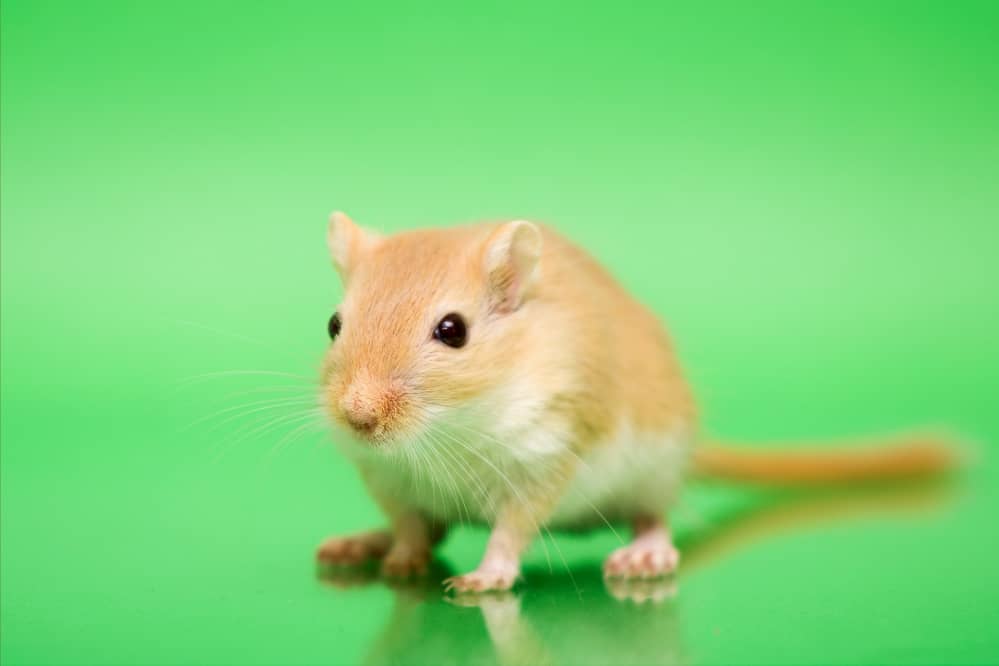Gerbils are little rodents that make excellent pets. Despite the fact that gerbils have a shorter lifespan than other pets such as cats and dogs, the trend of keeping a gerbil as a pet is on the rise.
Gerbils have an average life span of 3 to 4 years, with some living up to 5 years. The lifespan of a gerbil can be increased by providing a good diet, maintaining good hygiene, and proving your gerbil with optimal housing.
What Is The Average Lifespan Of Gerbils?
Gerbils typically live between three and four years, both in captivity and in the wild. Nevertheless, some gerbils may have a lifespan of up to 5 years. Gerbils are particularly delicate creatures since they have many predators in the wild that they cannot fight off, and the only way they can get away from them is by running and hiding.
Sudden changes in their environment or nutrition might stress them out easily and impair their immunity. Impaired immunity can result in diseases and health conditions like dental problems, skin problems, and digestive problems, all of which can decrease a gerbil’s lifespan.
Do Gerbils Make Life-Long Companions?
As stated above gerbils only live for a maximum of 5 years, therefore they can’t be lifelong companions for a human. However, if you lose your pet gerbil, don’t be sad because they won’t live much longer than 5 years no matter what you do.
A pet other than a gerbil is a better choice if you truly want a lifelong companion like a parrot, cat, or dog. If you lose your pet gerbil, you can always get another one to keep yourself occupied.
When Do Gerbils Get Mature?
Gerbils reach sexual maturity between the ages of 9 and 12 weeks or around 3 months. Since gerbils are rodents, they reach sexual maturity fairly quickly and begin reproducing as soon as they are paired with a partner.
You should pair them before they are fully matured, usually when they are 6 to 8 weeks old so that they can get used to one another.
The Complete Life Cycle Of A Gerbil
The following is a detailed breakdown of a gerbil’s life cycle:
Babies
Gerbil litter sizes range from 4 to 8 babies on average. Gerbils are born blind and deaf; they don’t open their eyes until they are two to three weeks old.
Weaning stage
Baby gerbils have no teeth and rely entirely on their mother’s milk for survival. When they are about a month old, they begin to transition from their mothers’ milk to their regular food.
Maturity
Gerbils reach sexual maturity and become fertile at about 3 months of age. However, you should pair a gerbil before they reach sexual maturity, which is normally when they are 6 to 8 weeks old.
Adulthood
Gerbils are classified as adults once they are weaned, have fully opened their eyes, can use all of their senses, and start to reproduce.
How To Determine The Age Of A Gerbil?
Although it is difficult to determine a gerbil’s exact age, certain characteristics can provide an estimate.
Eyes
Normally when gerbils are born their eyes are closed and when they are about 2 to 3 weeks old they open their eyes. So you can tell if they are older than three weeks by looking at the state of their eyes.
Fur
When gerbils are born, they are naked and without fur; they do not develop proper fur until they are 4 weeks old.
Solid food
When a gerbil is consuming solid food, it is often beyond the weaning stage and is older than one month.
What Is The Longest A Gerbil Has Ever Lived?
The longest-living gerbil, Sahara, was a Mongolian gerbil who was born in May 1973 and passed away on October 4, 1981, aged 8 years and 4 months, according to Guinness World Records 2014 (Jim Pattison).
How Can You Increase The Lifespan Of A Gerbil?
A gerbil’s average lifespan is 3 to 4 years, but with proper care, you may undoubtedly prolong the life of your small pet. The following are some of the things you can do to help your gerbil live longer:
Balanced diet
The most important factor that can lengthen your gerbil’s lifespan is good nutrition. Provide your gerbil with a balanced diet that includes lots of grasses and plant material, as well as insects, plant roots, and treats.
Company
Since they are social animals, gerbils prefer to live in groups. Never make the mistake of keeping a gerbil alone as it might become bored and stressed out, which causes its immune system to weaken resulting in illnesses.
Adequate housing
Because housing can have a significant impact on a gerbil’s life, make sure to give it the best possible living space. Make sure your gerbil’s enclosure is between 20 and 24 degrees Celsius in temperature, and that the humidity level is also within the recommended range.
Good veterinary care
Good veterinary care is essential to keep your gerbil healthy because gerbils are susceptible to a wide range of illnesses and health disorders, including dental problems, skin problems, and tail problems. Don’t skip any scheduled visits to the vet for your gerbil.
Summary
A gerbil can generally survive for 3 to 4 years, and some gerbils can even live for 5 years. To increase the lifespan of your gerbil, make sure to provide it with proper food, shelter, and veterinary care. Remember a gerbil should not be kept alone because they are social animals.

